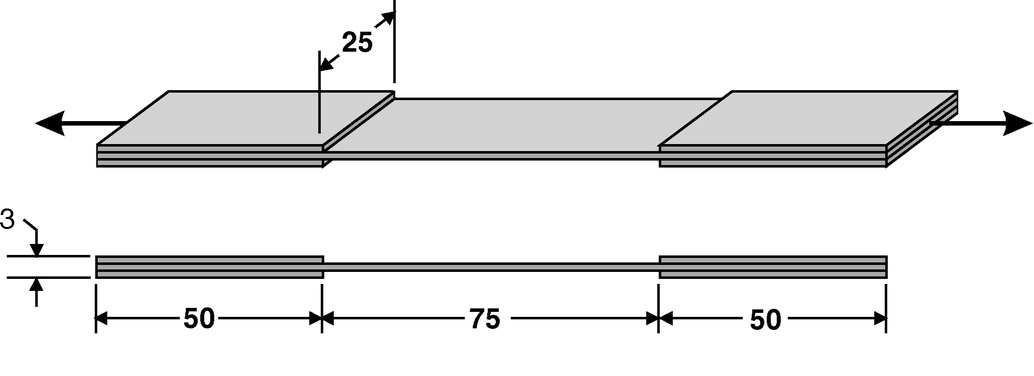

EUROLAB Laboratory provides Standard Test services for the Tensile Properties of ASTM D3039 Polymer Matrix Composite Materials to its customers within the scope of industrial testing services.

The ASTM D3039 tensile test is used to measure the force required to break a polymer composite specimen and how far the specimen stretches or elongates to that breaking point. Tensile tests produce a stress-strain diagram that is used to determine the tensile modulus. Data is often used to specify a material, design parts to withstand application force, and as a quality control check of materials. Because the physical properties of many materials can vary with ambient temperature, it is sometimes appropriate to test materials at temperatures that simulate the intended end-use environment.
ASTM D3039 Test procedure:
Samples are placed at a holding distance from the handles of a Universal Testing Machine and pulled until they fail. Test rate for ASTM D3039 can be determined by material specification or downtime (1 to 10 minutes). A typical test speed for standard test specimens is 2 mm/min (0,05 inch/min). An extensometer or strain gauge is used to determine the elongation and tensile modulus. Depending on the supplement and its type, testing in more than one orientation may be necessary.
ASTM D3039 Elevated or reduced temperature test procedure:
A thermal chamber is installed in the Universal Testing Machine. The chamber is designed to allow test connections from the base and crosshead of the Universal Tester to pass above and below the chamber. Standard test fixtures are installed inside the chamber and the test is performed in a controlled thermal environment as at ambient temperature. The chamber has internal electric heaters for high temperatures and uses external carbon dioxide gas or liquid nitrogen as a coolant for low temperatures.
ASTM D3039 Sample size:
The most common specimen for ASTM D3039 is a fixed rectangular section 25 mm (1 inch) wide and 250 mm (10 mm) long. Optional tabs can be attached to the ends of the specimen to prevent coupling damage. This test method is designed to generate tensile property data for material properties, research and development, quality assurance, and structural design and analysis. Factors that affect tensile response and therefore should be reported include: material, material preparation and placement methods, sample stacking order, sample preparation, sample conditioning, test environment, sample alignment and grip, test speed, time temperature, void content, and volume percent in supplement. Test-side characteristics that can be derived from this test method include:
The ASTM D3039 Test standard is also associated with the following ASTM standards.
To get an appointment, to get more detailed information or to request an evaluation, you can ask us to fill in our form and reach you.